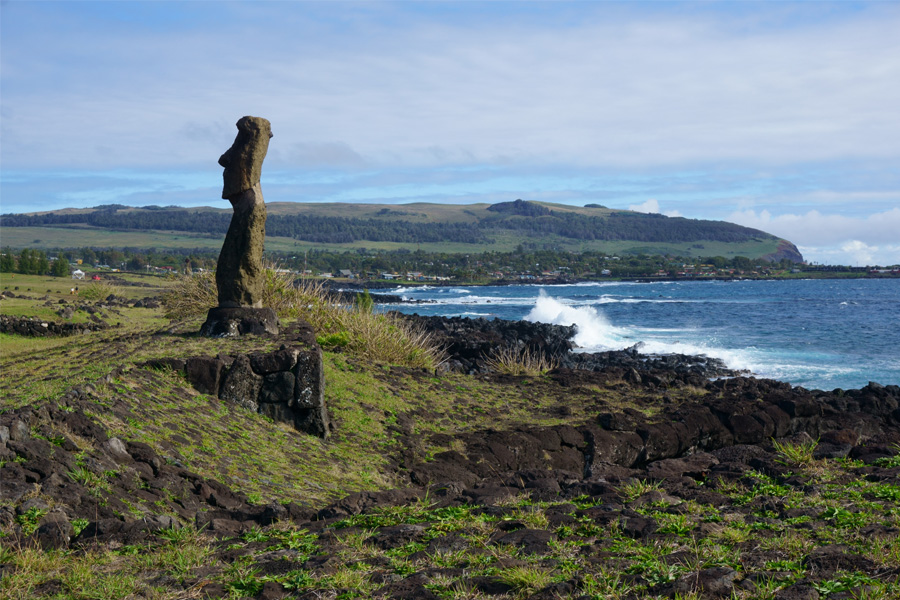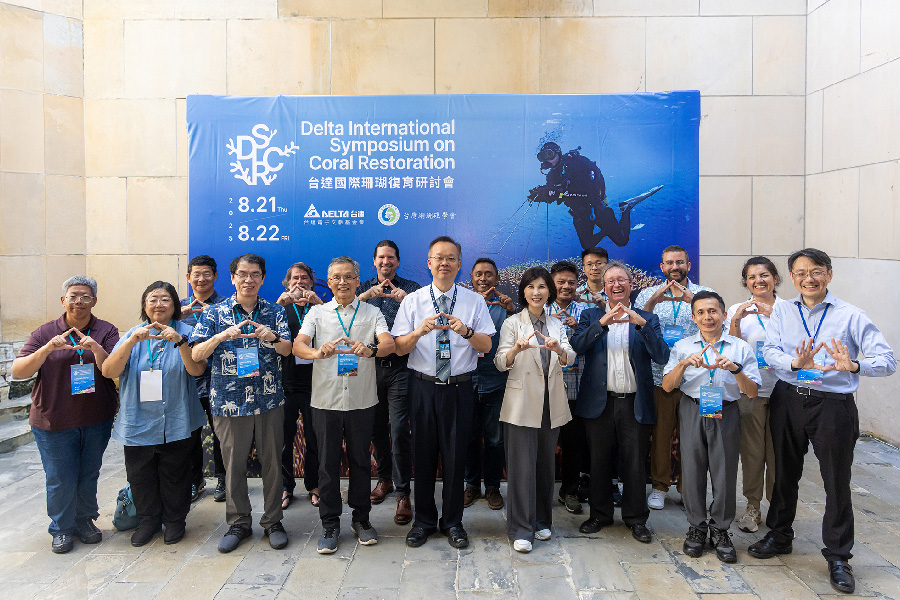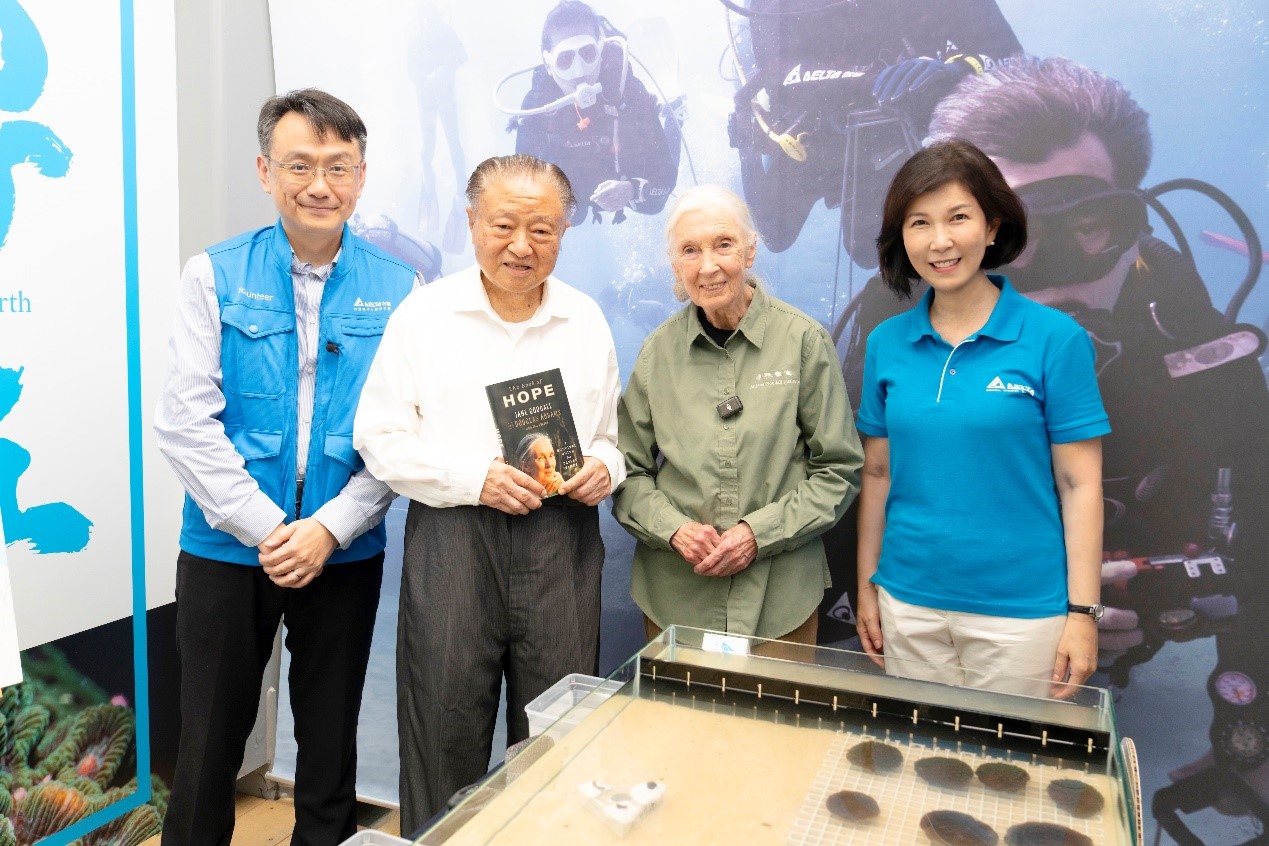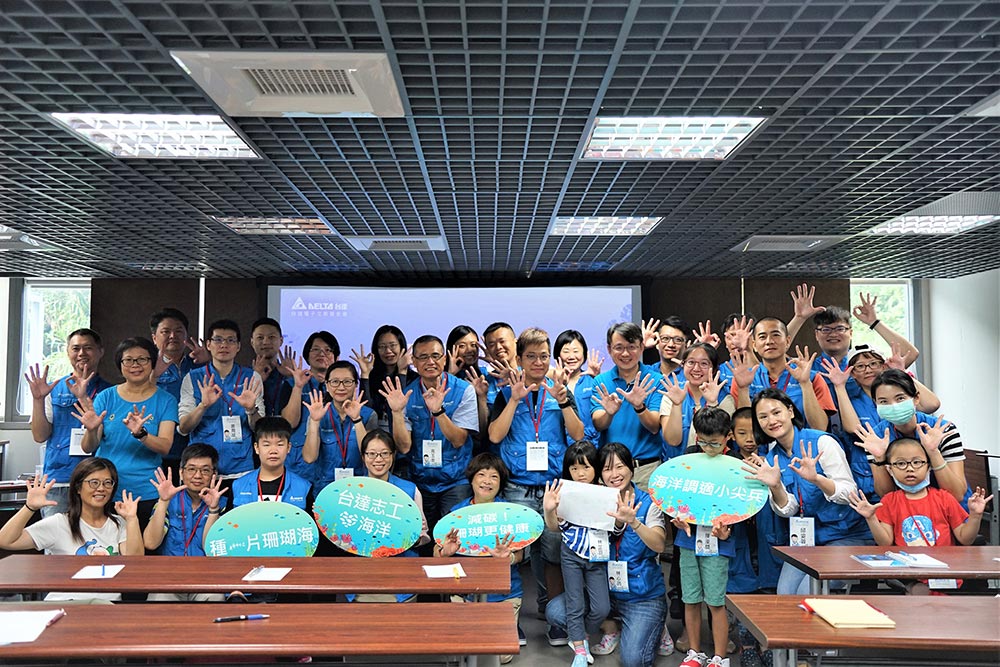
The IPCC pointed out in recent years that at the current rate of warming, the global average temperature increase will exceed 1.5°C in about ten years, resulting in the disappearance of 70-90% of the existing coral reefs! In response to this crisis, this year, the Foundation held a special cross-regional marine conservation workshop. On September 26 and 27, Delta volunteers visited the Northeast Coast, the first scene where the ecosystem suffered from the impact of climate change. They witnessed the changes to the coral reef ecosystem, explored the mechanism of carbon sequestration in coral reef systems and the diverse organisms cultured under the protection of the habitat, and personally participated in the physical work and research of coral reef conservation.
The volunteers learned about how to classify corals and their growing environment, and actually worked on the Coral Health Charts to determine their health status. The data collected during the workshop were uploaded to the platform of the nonprofit organization CREON (Coral Reef Ecological Observation Network) and will be monitored by using the big data approach. Aspiring to be the pioneers in optimizing coral conservation tasks, the volunteers hope to complement Taiwan’s insuffi-cient manpower in ocean carbon reduction and climate change adaptation.
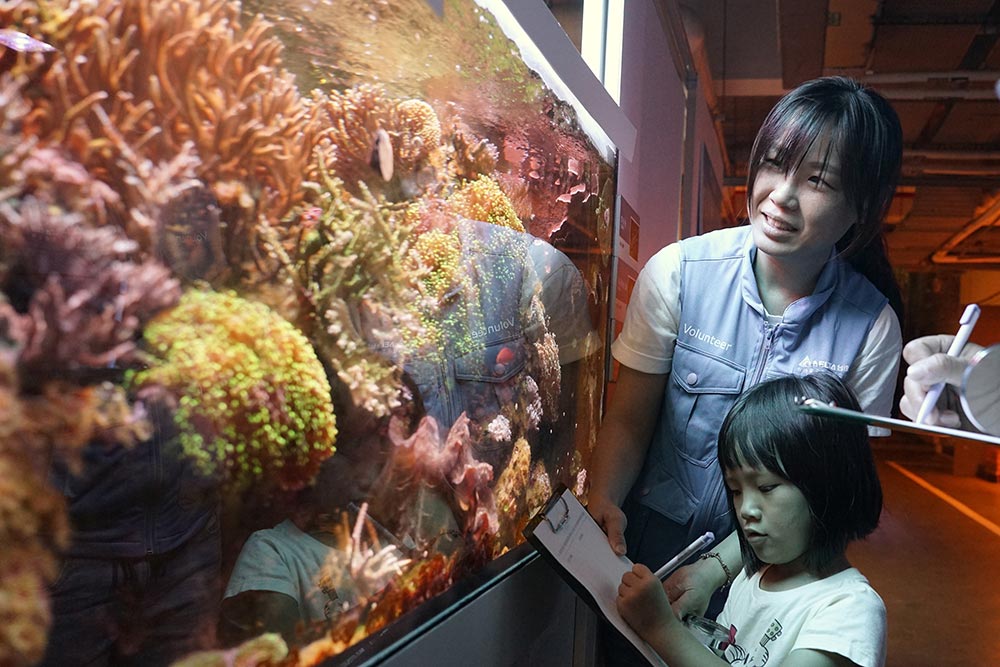
On the second day, the volunteers visited the exhibition held at the National Museum of Marine Science and Technology. By showing environmental images, the museum illustrated the impact of global warming on the reproduc-tion of marine species. They found that the increased proportion of female sea turtles caused by the rising sea temperature may result in imbalanced population between male and female sea turtles in the future. In addition, ocean acidification and warming are not only detrimental to the growth of corals, but can also alter the chemical composition of seawater, which has become a major problem to the interactions between species. All of these courses helped volunteers to gain a further understanding of the ocean and the ecology of coral reefs. The workshop also included a DIY activity of making a coral reproduction hand-book and an experimental learning activity to simulate corals’ preying process.
Equipped with the basic knowledge, Delta volunteers began to take on the challenge of coral restoration work. In the afternoon, they went to the Reservation Association of Mountain and Sea Angel at Longdong Bay in the Northeast Coast and started using different methods to fix the coral branches to the carriers by the coral restoration pool. Nevertheless, the weather turned bad, the rough seas affected their original plan, but it also gave them more time to tie corals and use underwater drones to observe the status of coral bleaching.
The spirit of Delta volunteers was especially impres-sive. They came from Taoyuan, Hsinchu, Taichung, and Tainan plants respectively. Not only did they learn the basic knowledge in the two-day marine conservation workshop, but they also helped support the marine conservation work in the rain. We all shared the same lamentation that we humans, when facing with climate change, are more capable of adapting to a changing environ-ment than many marine organisms. Many marine species lack our flexibility and intelligence; they might gradually disappear from the planet. It’s imperative that we should take more positive actions to protect them.
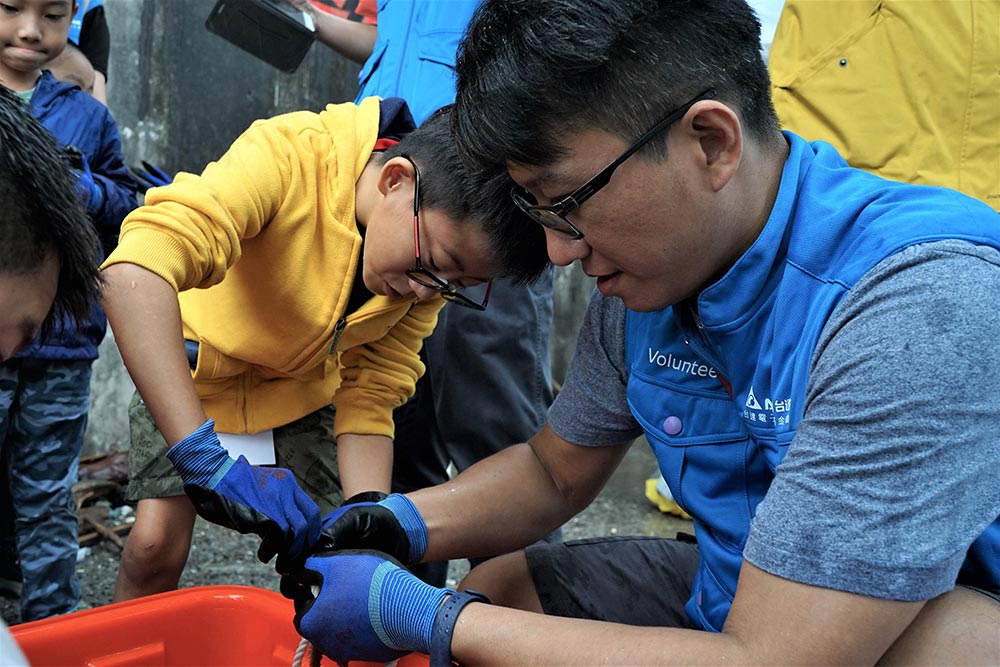
By personally experiencing the severity of the problem at the first scene, the volunteers gained a deeper understanding of the tremendous power of the ocean’s capability in carbon sequestration and the difficulties of carbon reduction. Looking at their hands and recalling the regenerated corals capturing the carbon we emit, some volunteers said that this was akin to the foolish old man in the ancient Chinese fable who removed the mountains, as well as the analogy to an old saying "Every drop makes an ocean". Hopefully, the knowledge of marine conservation and energy conservation taught by Delta volunteers will raise more public awareness of carbon reduction, and the public awareness will eventually branch and grow like the coral reefs protected by these conservation efforts.












